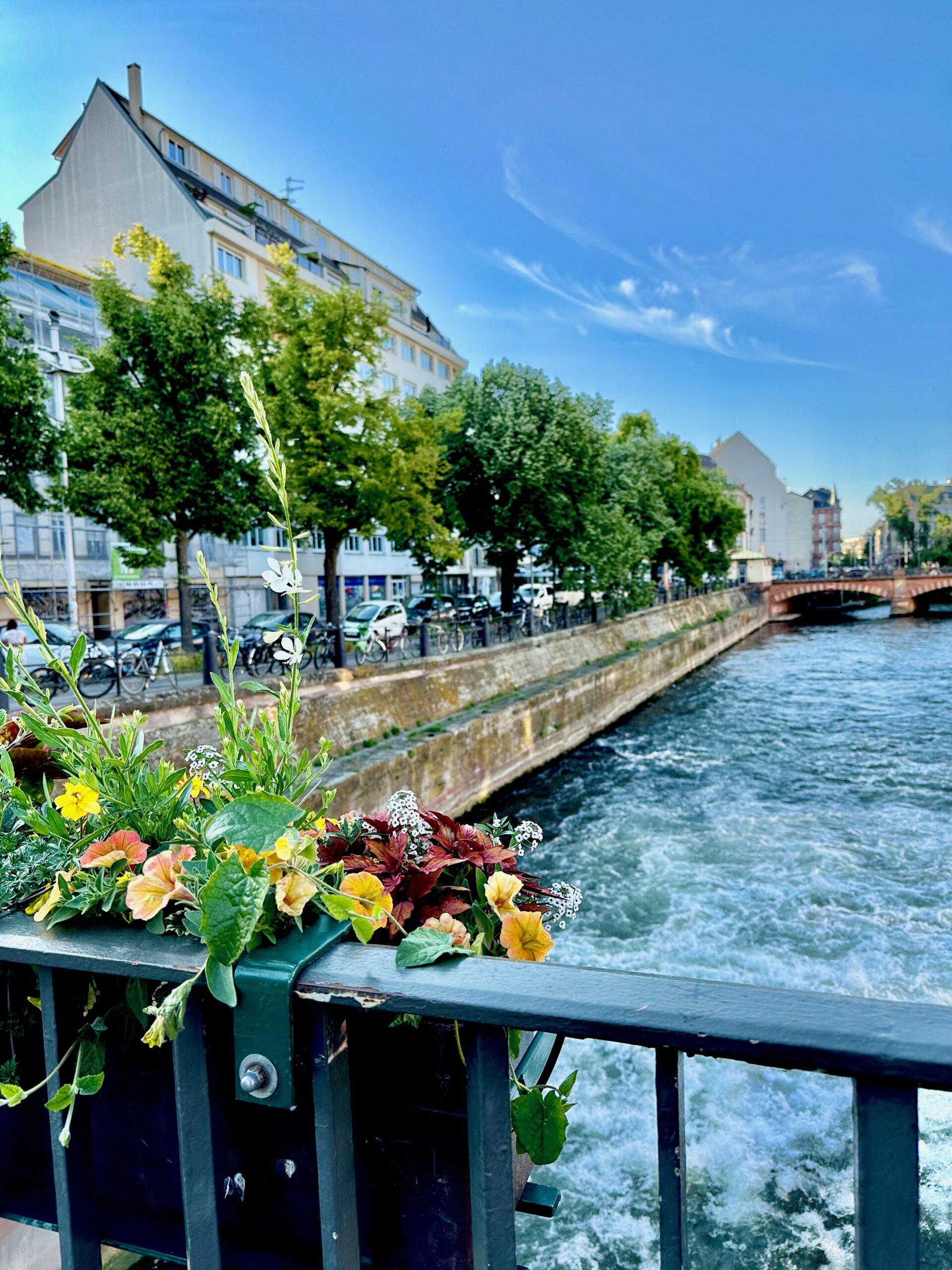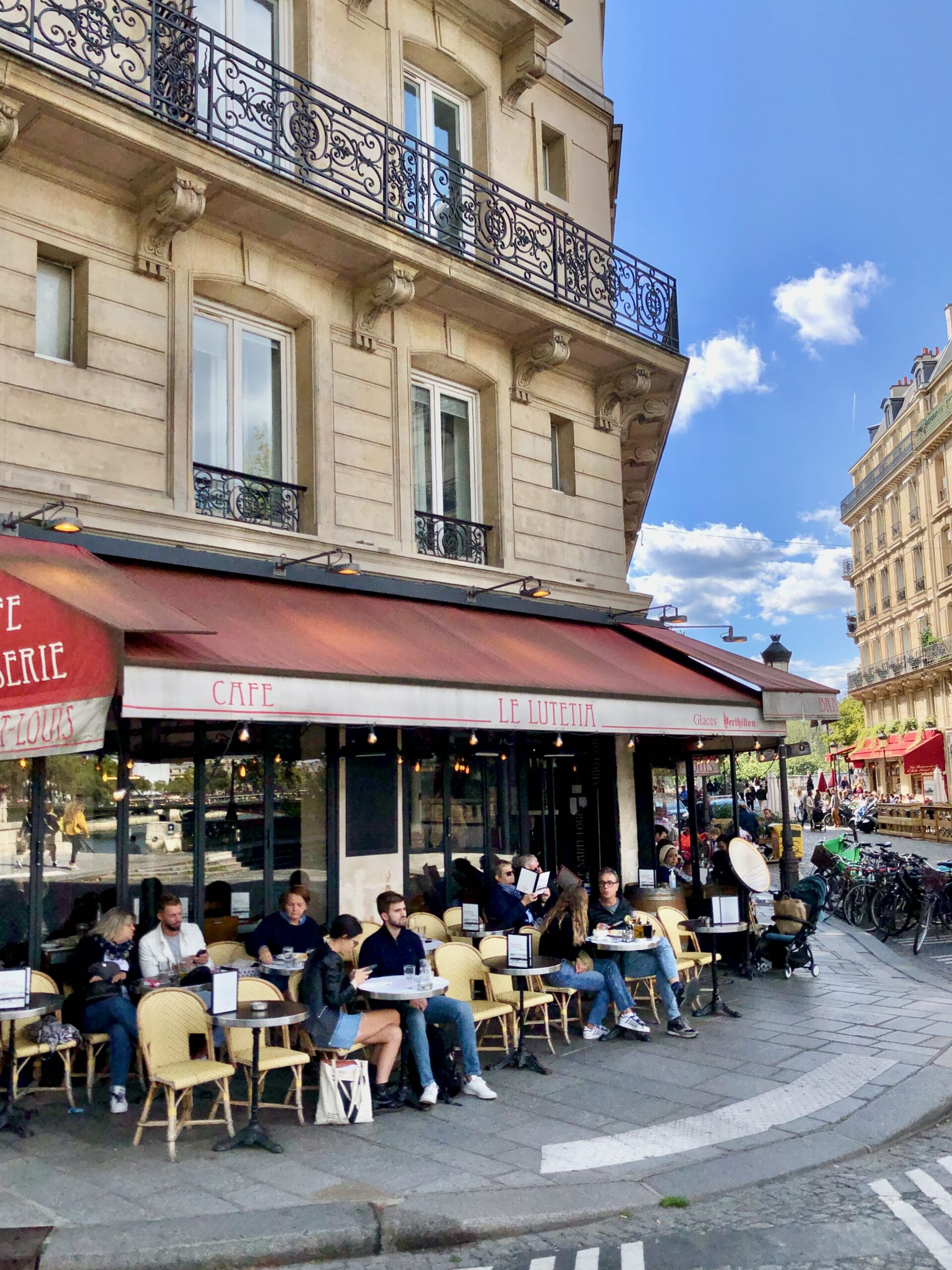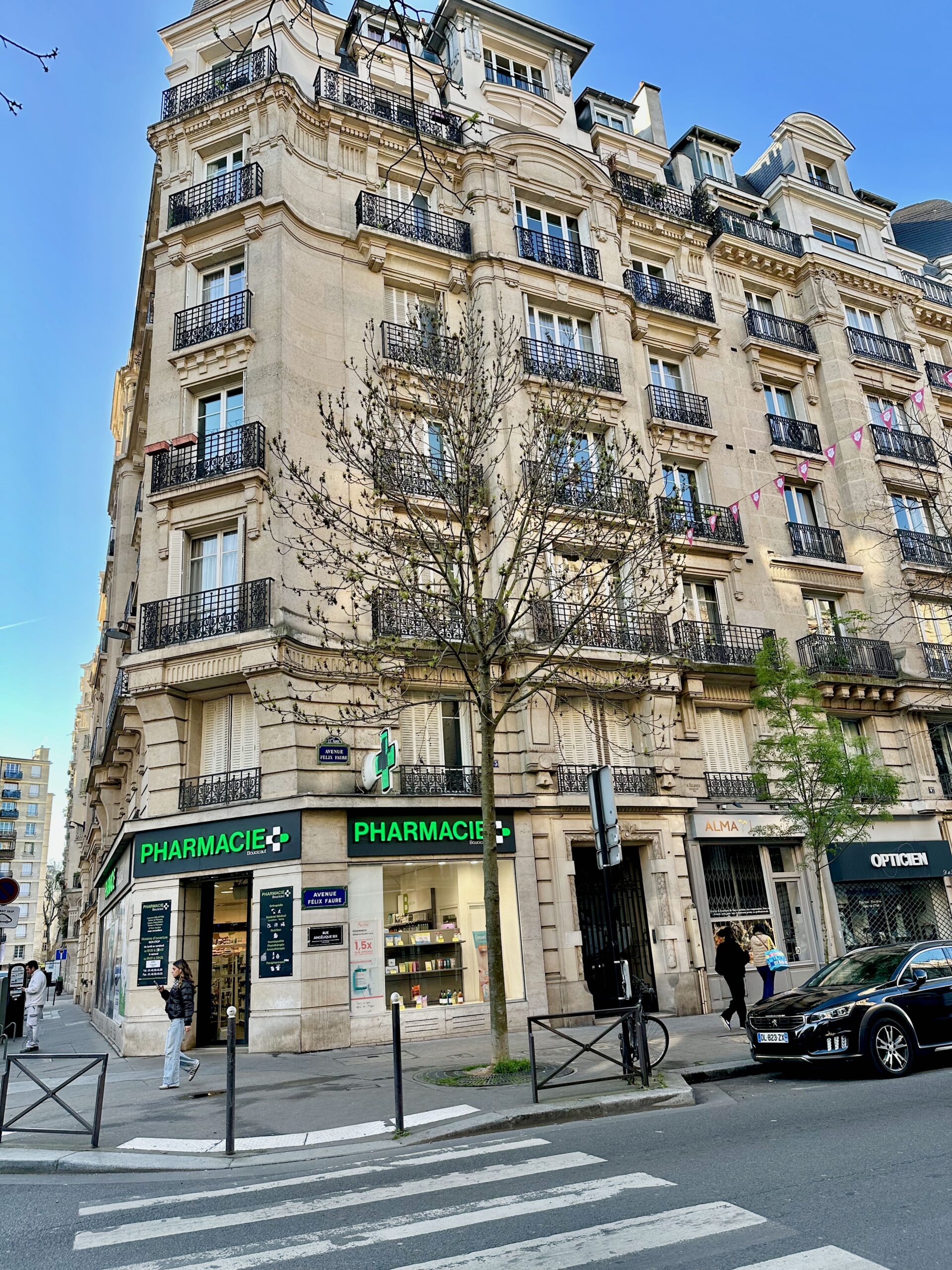This post may contain affiliate links, meaning that if you click and make a purchase, I may earn a commission at no additional cost to you. Read the full disclosure here.
America, the land of the free! But how free are you if you can’t drink a beer in a public park?
Here’s a list of some things you can do in France that you can’t do in the United States.
Keep in mind that this isn’t a post to bash the U.S. although arguably there are some things on this list where a judgment is being made. As I like to mention, there are pros and cons to living anywhere, and I’ve already examined the other side in a related post: Things You Can Do in the United States That You Can’t Do in France.
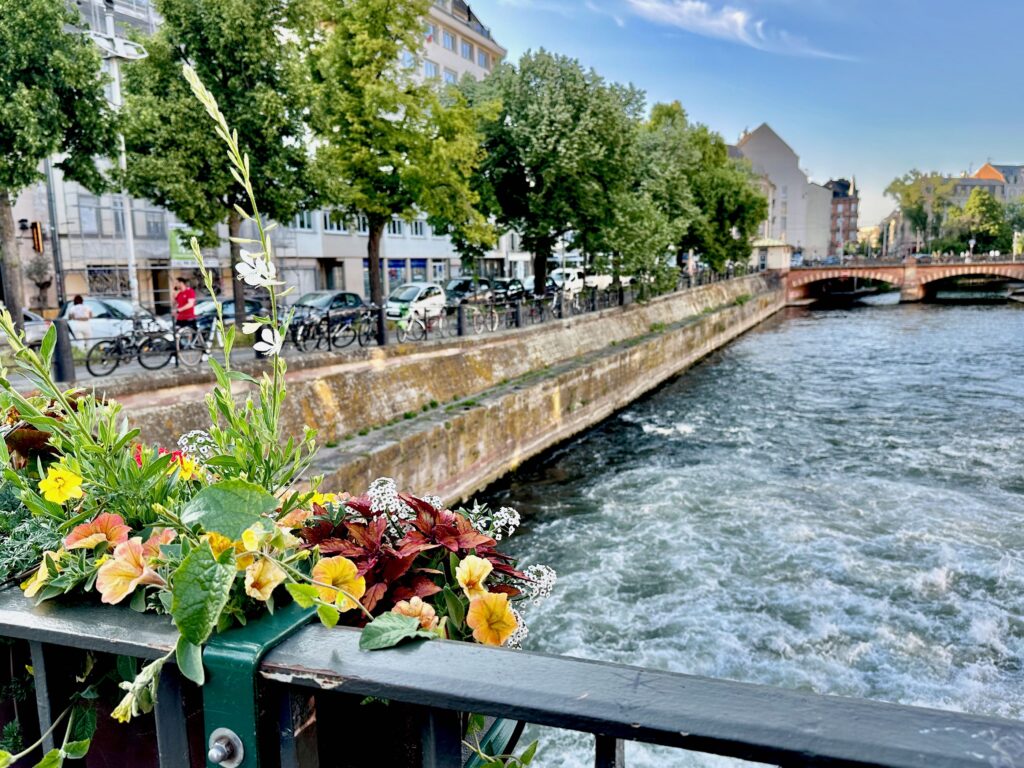
1. Take a High-Speed Train to a Different Part of the Country
High-speed trains in France (TGV—trains à grande vitesse) can reach speeds of 199 mph (320 km/h). According to the SNCFConnect website, “TGVs can take you to more than 200 cities all over France and Europe.” You can go quite a distance very quickly.
In comparison, the Amtrak Acela is the fastest train in the United States. With speeds of up to 150 mph (241 km/h), it can be considered a high-speed train. However, it only services cities in the Northeast. The vast territory, old rail lines, and state structure of the country are some of the challenges the USA faces in having a national high-speed rail infrastructure.
2. Buy and Eat Illegal Cheeses
“[…] in France, raw milk cheese is a very big deal, long considered safe and revered for its flavor.” (Fulton, NPR) There are many cheeses on the French market produced with raw milk, and boy, are they delicious!
On the other hand, the United States has many regulations around raw milk products and heavily favors pasteurization. While there’s less of a problem with raw milk products that are produced in the U.S., imports are (understandably) heavily controlled. This means that there are certain French cheeses that are impossible to find in their raw milk form.
Reblochon and Mont d’Or are two delightful cheeses that come to mind. Available seasonally, these cheeses are known for their melty quality and are a true comfort food on a cold winter day. When any American friends come to visit me in France in the winter season, I love to host them for a cheesy fondue situation.
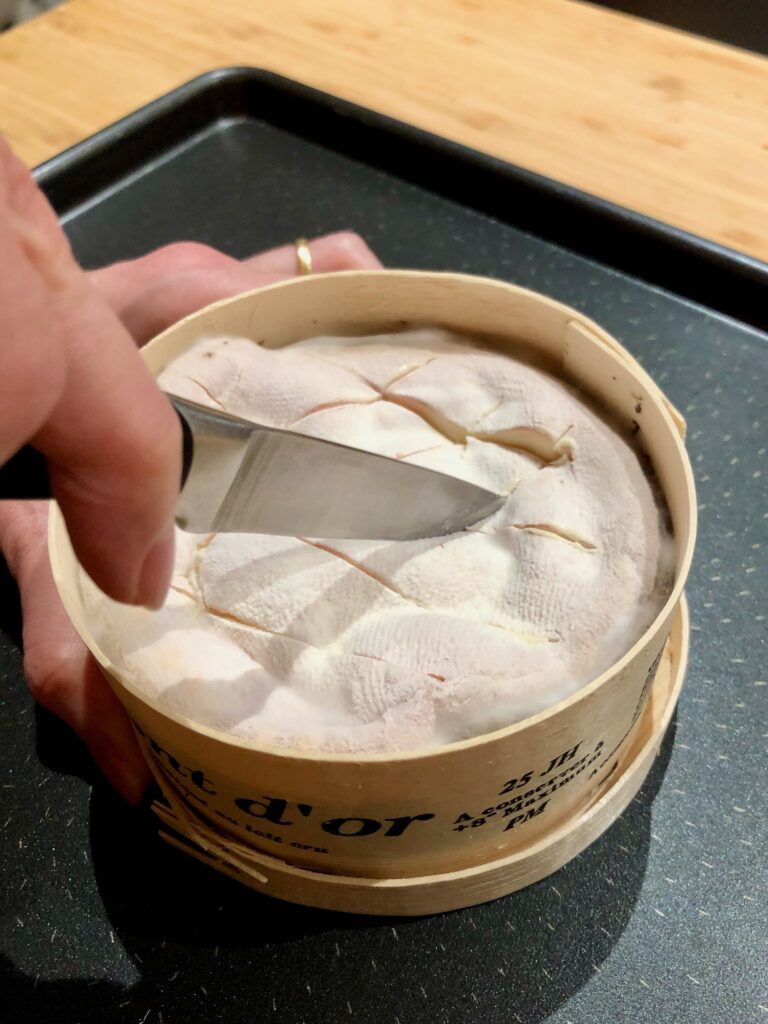


3. Access Amazing Bread & Pastries
Fresh baguettes, buttery croissants, and delightful pastries… Bakeries are plentiful in France, and even the smallest French town is going to have at least one. With the high quality of baked goods available, going to the boulangerie feels like an affordable little luxury. In reality, bread is a staple in France, not a luxury item, and many people frequent their local bakery regularly.
In the U.S., you’re more likely to come across a bakery that sells cupcakes or a donut shop before you find a traditional bakery that sells fresh bread. Of course, bakeries like those in France do exist in the U.S., but they are far less prevalent. It’s easier to find bakeries in bigger American cities.
4. Enjoy a Two-Hour Lunch Break
Ok, the 2-hour lunch break stereotype is perhaps a bit overdone. (Thank you, Emily in Paris.) However, there is no denying that in France, typically, you’re going to take a solid, reasonable lunch break every day. In fact, it’s required by law for employees to have at least 20 minutes off to eat lunch. In practice, the break is closer to a minimum of 45 minutes, as mentioned on the government website explaining this law.
Indeed, TF1 INFO reported that the average lunch for French people lasts 47 minutes. That’s enough time to go out to eat, although it seems like fewer French people are doing that these days in order to save money. All the same, even if lunch is taken in the office, it’s more likely to be eaten in a common area or kitchen and not at your desk.
This is such a departure from the rapid lunch breaks that are common in the United States. While working in an American public school, I always felt bad for my students who needed to scarf down their food in 15 minutes so that they could enjoy their measly 15 minutes of recess.
5. Sit in a Restaurant for as Long as You Like
If you’re waiting for the check to come, you might end up waiting a while… In France, it’s not typical to chase away customers after a meal or even after a simple coffee. Clients can sit for as long as they like and enjoy the aftereffects of good food and drink. In most places, there’s no pressure to leave or continue ordering.
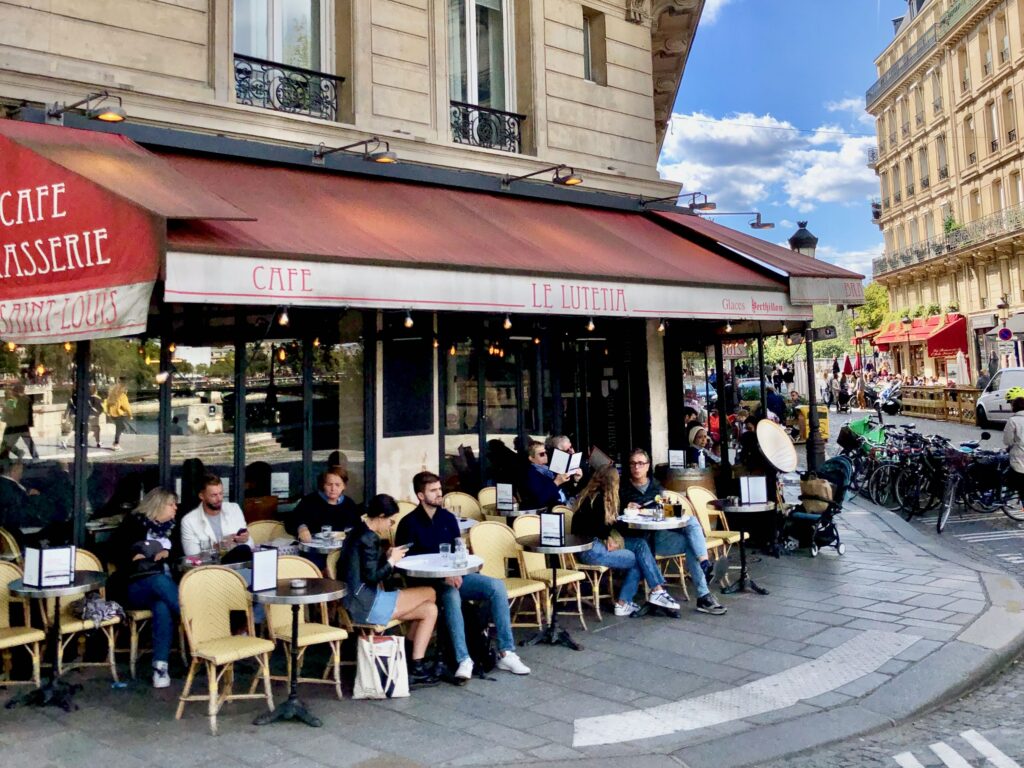
Eating out in the States can sometimes feel rushed. With waiters depending on tips as part of their income, they’re looking to turn over tables and seat the next round of customers. It’s common courtesy to not dawdle at a popular spot, especially if you know people are waiting.
6. Drink Alcohol in Public
Currently, there are no national laws prohibiting the consumption of alcohol in public spaces in France. Local regulations are sometimes implemented regarding drinking in public, and there were total bans during Covid. Additionally, drunk and disorderly behavior is against the law. Generally, though, you can enjoy your beverage of choice in a park, along the Seine River, or while strolling the streets.
In the U.S., open-container laws vary state by state. Honestly, there is no way I could tell you all the laws concerning the consumption and sale of alcohol in the States if I tried. In most states, public drinking is not allowed.
7. Go Out for a Drink Without Getting Carded
Legally, you can start drinking alcohol at 18 years old in France. Culturally, it’s common to have your first drink a bit earlier. My French husband has often mentioned the sips he and his siblings would have at family events. When purchasing alcohol or going out to a bar in France, I’ve never been carded, even when I was a college student.

It’s true, my getting carded days in the United States are slowly coming to an end. I’m learning to enthusiastically embrace the rare ask to see my proof of ID. Underage sales of alcohol can come with hefty penalties in the U.S., so it’s common for some establishments to just card everyone.
8. Purchase a Decent Bottle of Wine for 8-10 Euros
It’s going to be grocery store wine, but does that matter? Wine connoisseurs, please don’t come at me. I’m not talking about great wines, just decent ones. A table wine, if you will. For 8-10 euros, you can get a decent bottle of wine at the grocery store in France.
For the same caliber of quality in the United States, you’d be more in the 15-20 USD range. In some states, you can’t even get wine in a grocery store! So if you’re from Connecticut like me, where wine sales are prohibited in supermarkets, you’d need to head to the package store.
9. Know the Full Cost of Something Upfront
In France, prices are typically listed with toutes taxes comprises (TTC). This means that all taxes are included in the displayed price. Whether you are shopping in a store, buying something online, eating in a restaurant, or engaging someone’s services, you can usually assume that the price you’re seeing is exactly what you’ll be expected to pay.
I didn’t realize until I traveled to France that I was always automatically doing mental calculations in the store and online. Whether I was booking a hotel room, eating out, or buying some incidentals at the pharmacy, I had the habit of estimating taxes (and tips) to figure out the actual cost. This one is now a bit of a reverse culture shock for me when I’m stateside and confronted with all the additions to the price tag.
10. Choose Your Level of Flushing
In France, the dual-flush toilet system is standard. It’s not difficult to understand. There are two buttons of different sizes. The bigger button is a full flush, while the smaller one uses less water.
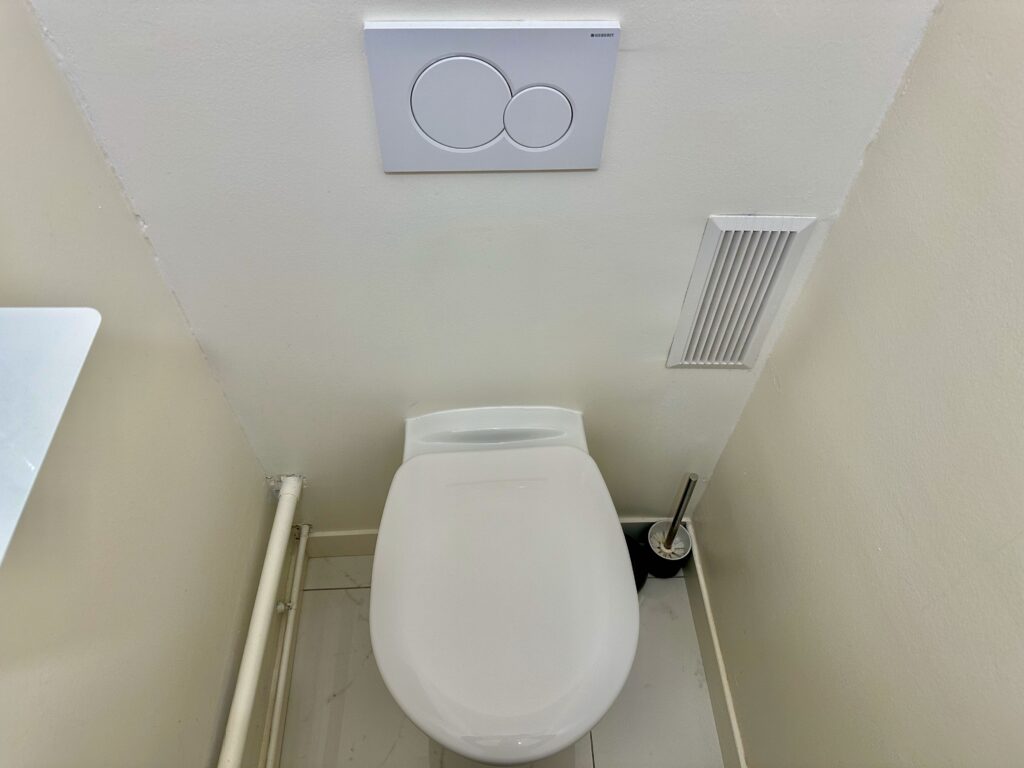
Most toilets in the USA just have one option, and it empties the whole water tank. It’s a pretty forceful flush.
11. Not Pay Rent for 5 Months and Not Get Kicked Out
Have you heard of la trève hivernale? The “winter truce” is a 5-month period extending from November 1st to March 31st of the following year. During this time period, it is illegal to evict tenants, even if they are not up to date on their rental payments. Likewise, even if there are unpaid bills, neither electricity nor gas can be cut.
As you might imagine, rental laws around the U.S. vary greatly. Generally, though, a landlord can evict a tenant at any time during the year as long as the proper legal steps are taken.
12. Request a House Call From a Doctor
SOS Médecins is a medical service in France that is available to make house calls 24 hours a day. If you’re not feeling well enough to go out or if your general practitioner is unavailable, a doctor can do a consultation in your home. The French healthcare program reimburses some of the cost for the visit. The remaining cost may be covered by your mutuelle (top-up insurance) if you have one.
In the U.S., it’s pretty rare to have a house call from a doctor these days. I’m certain it’s possible, but I can’t imagine how much it would set you back.
13. Ask for Medical Advice at the Pharmacy
Pharmacists in France are highly trained and serve as a valuable first port of call when diagnosing and treating minor illnesses. Instead of waiting to see a doctor, it’s common to head to the pharmacy. If they are unable to give guidance, they’ll suggest you see a doctor instead.
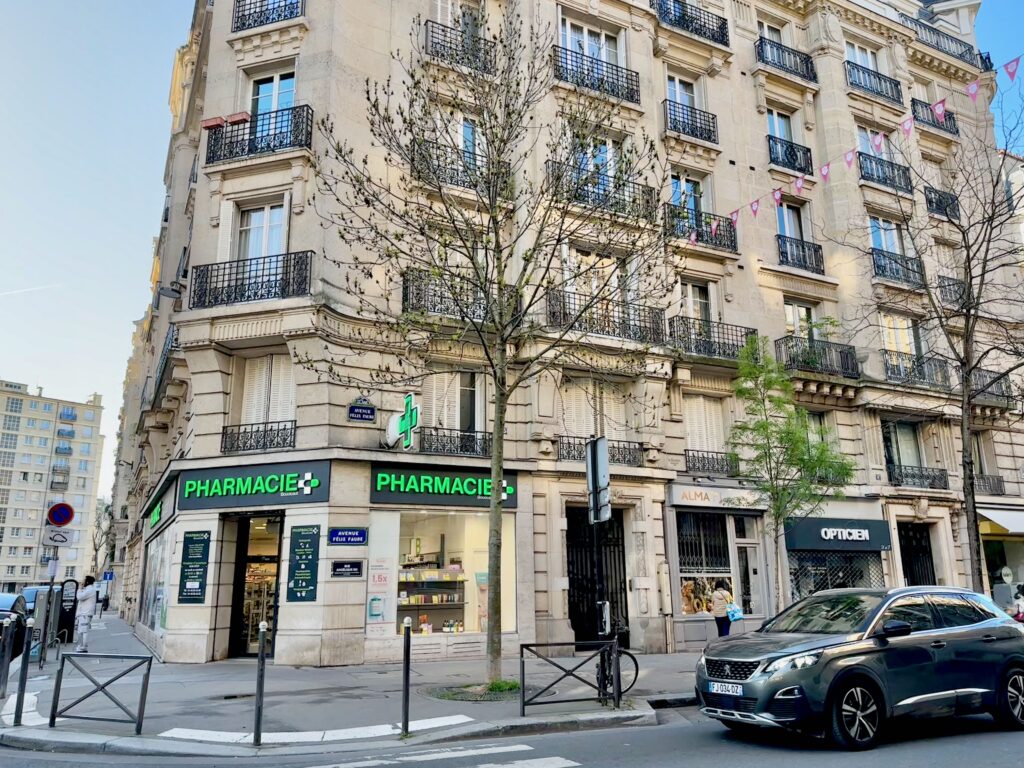
The only thing I’ve asked of a pharmacist in the United States is to help with comparing different brands of medications. This is pretty common when trying to avoid co-pays. Otherwise, I’ve never thought to ask a pharmacist in the United States for health advice, and I imagine many would decline offering medical advice.
14. Get an Abortion
France is the first country in the world to protect the right to abortion in its constitution. Abortion is allowed up to 14 weeks after conception (16 weeks after last period). Additionally, the national healthcare program covers abortion costs for insured women.
On the other hand, in the U.S., when federal protections for a woman’s right to an abortion were overturned in 2022, regulations around abortions were relegated to the state level. As a result, there is a spectrum of abortion laws, ranging from legality at any stage to strict illegality with few exceptions. Some states have even made efforts to ban people from traveling for an abortion and to prosecute anyone helping patients to do so.
15. Have Paid Parental Leave
Expectant parents in France benefit from paid parental leave. Both partners can have time off to be with their new arrival. Generally, maternity leave in France is 16 weeks, while paternity leave is 28 days. Even as a self-employed freelancer in France, I was entitled to paid maternity leave, which came as quite a surprise to me! The same rights that are available to a salaried worker were available to me.
The United States is one of few countries that does not have any federal laws guaranteeing paid maternity leave. Most parents in the U.S. use the Family Medical Leave Act (FMLA) if they are eligible. This law allows for 12 weeks of job protection with unpaid leave for the birth of a child. It can be applied by both parents.
Did anything surprise you on this list? Are there any other things you would add?
